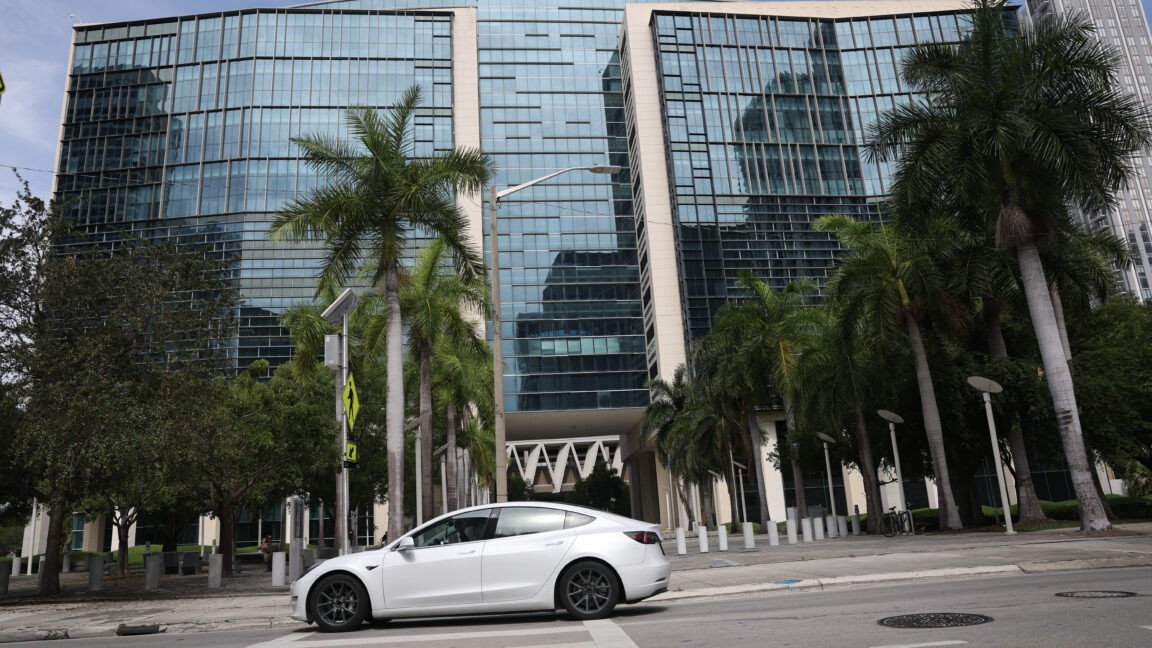Introduction
In recent years, autonomous driving technology has been at the forefront of automotive innovation. Companies like Tesla have been pioneers, with their Autopilot system promising to revolutionize how we perceive driving. However, the journey towards fully autonomous vehicles has not been without its hurdles. A federal trial has brought Tesla’s Autopilot into the spotlight, following a tragic incident in 2019 where a Tesla on Autopilot ran a stop sign and fatally struck two pedestrians. This trial has reignited debates around the safety and reliability of autonomous driving technologies.
Incident Overview
The incident in question occurred in 2019 when a Tesla vehicle, operating under its Autopilot mode, failed to stop at a stop sign and collided with two individuals who were stargazing. This tragic event has raised significant concerns about the safety protocols and reliability of Tesla’s Autopilot system. As the trial unfolds, experts are weighing in on the potential flaws and risks associated with autonomous driving technologies.
Key Incident Details
- Date of Incident: 2019
- Location: Unspecified, near a stargazing site
- Vehicle: Tesla with Autopilot engaged
- Outcome: Two fatalities
Breaking Developments
| Date | Event |
|---|---|
| July 2025 | Federal trial begins |
| August 2025 | Experts testify against Tesla’s Autopilot safety |
Expert Reactions
The trial has seen a host of experts from various fields provide their insights into the safety of Tesla’s Autopilot system. Their testimonies have been crucial in understanding the broader implications of autonomous driving technologies.
- Dr. Emily Carter, Automotive Safety Expert: Dr. Carter emphasized the need for more stringent safety protocols and testing for autonomous vehicles. She argued that the current systems might not be fully equipped to handle complex driving scenarios.
- John Marshall, AI Researcher: Marshall highlighted potential flaws in the machine learning algorithms used in Tesla’s Autopilot. According to him, the system’s inability to accurately predict certain driving conditions could lead to fatal errors.
- Rachel Nguyen, Transportation Analyst: Nguyen pointed out the regulatory challenges in enforcing safety standards for autonomous vehicles, advocating for a more robust framework to ensure public safety.
Source: Experts lay into Tesla safety in federal autopilot trial
Technical Analysis of Tesla’s Autopilot
Understanding the technical underpinnings of Tesla’s Autopilot system is crucial in assessing its safety and reliability. Below is a detailed look at the system’s capabilities and limitations:
| Feature | Detail |
|---|---|
| Sensor Suite | Includes cameras, ultrasonic sensors, and radar |
| Core Technology | Machine learning algorithms for object detection and decision-making |
| Key Limitation | Challenges in complex scenarios such as stop signs and pedestrian detection |
Performance Benchmarks
- Obstacle Detection: Effective in clear conditions but struggles in adverse weather
- Navigation: Performs well on highways but less reliable in urban settings
- Emergency Response: Limited capability in handling sudden and unpredictable events
Regulatory and Ethical Considerations
The trial has also opened up discussions on the regulatory and ethical implications of autonomous driving technologies. As these vehicles become more common on our roads, several key considerations need to be addressed:
- Safety Standards: Establishing clear and enforceable safety standards is critical to ensure public trust in autonomous vehicles.
- Accountability: Determining liability in the event of an accident involving autonomous vehicles remains a complex legal challenge.
- Ethical Dilemmas: The ethical programming of autonomous vehicles, particularly in life-and-death situations, continues to be a contentious issue.
Conclusion
As the trial progresses, the scrutiny on Tesla’s Autopilot system underscores the broader challenges facing the autonomous driving industry. While the potential benefits of such technologies are immense, ensuring their safety and reliability is paramount. The outcome of this trial could set significant precedents for the future of autonomous vehicle regulation and development.
Tags: Tesla, Autopilot, autonomous vehicles, safety, technology, trial, 2025
Image source: Original Article





